Irrigation makes your garden more lush and attractive, but the same may not always be true when sprinklers start hitting the fence. If you have sprinklers in your garden, you may worry whether the water can ruin the fence. Can too much irrigation be a problem? We have researched answers to find out.
It is not recommended to place sprinklers near your fence. The water can ruin the appearance and functionality of your fencing, lowering its quality. Other problems you may encounter could be:
- Discolored paint on the fence
- Shortened lifespan because of water damage
- Added maintenance to the landscape near the fence and the fence itself
Planning your landscape thoroughly is key to avoiding irrigation and fence issues. You will also need to consider whether the sprinklers are bothering your neighbors, or accidentally hitting their property. If you want to learn more about this subject, keep reading below.
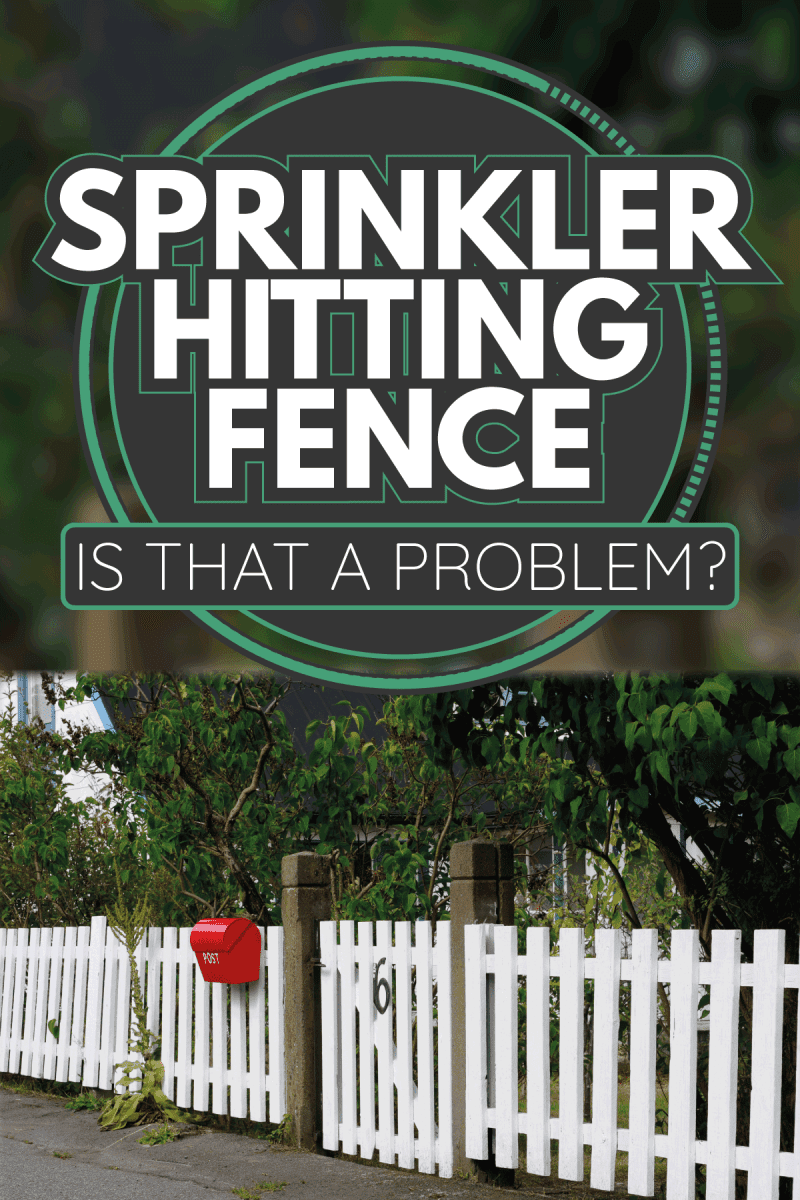
What happens when the sprinkler hits the fence?
Fences already suffer the occasional moisture due to weather changes, and the changes become obvious over time. When you have the sprinkler constantly saturating the surface with water, you can expect that it won’t look as good as when you first installed it.
Excessive water affects both the form and function of the fence. The effects are generally negative since most materials for the fence lack water resistance, especially wood.
One reason the sprinklers are situated near the fence is because of poor landscape planning. As a result, the fences wear out more easily and ruin the aesthetic of your outdoor scape.
Here are some of the things that can happen when the sprinkler hits the fence.
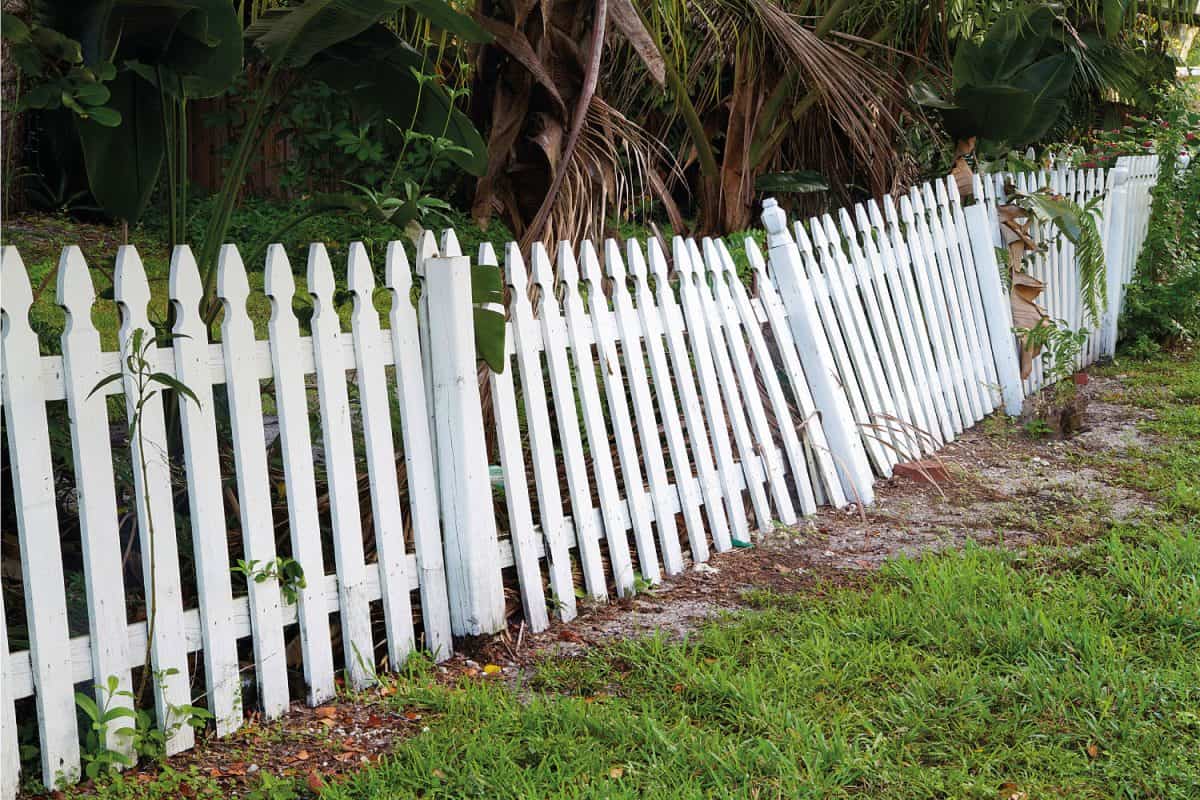
Discolored Paint on the Fence
One of our top priorities when selecting our fences is the aesthetic. We paint them, coat them, and maintain them in hopes that they will continue to beautify the home. Unfortunately, these are negated when the sprinklers are consistently damaging the surface with excessive moisture.
Part of maintaining the fence is eliminating their problem areas. Having plants near the fence will introduce mildew to the fences; installing sprinklers will strip the surface with its protective coating.
If you are worried about sun damage, you may have trees with thick canopies installed; only plant beds and sods are unadvisable.
To have fences that have a better chance of withstanding moisture damage, opt for high-quality wood fences such as cedar and southern yellow pine. Make sure to have it sealed with a protective coating so it never loses its color.
Shortened Lifespan Because of Water Damage
When the fence starts to show signs of discoloration, it will only worsen from there unless you address it quickly. Irrigation systems such as sprinklers cause the fences to rot as they get saturated with moisture, eventually losing their structural integrity.
Off course, wood is bound to deteriorate after a period of time because of weather patterns and humidity. However, you further shorten their lifespan by having sprinklers shower them constantly.
Protective sealants are supposed to improve their lifespan and retain their luster. However, once it is stripped off by excessive moisture, signs of wear will start showing on the surface and affect your outdoor aesthetic.
Added Maintenance to the Landscape Near the Fence and the Fence Itself
Since the water sprinklers make vegetation thrive, the plants and sod near the fencing will grow. This adds additional maintenance to your landscape.
You have to constantly trim the greenery surrounding the fence so the moisture doesn't damage the fences, and you have to regularly re-coat the surfaces to make them somehow water-resistant.
What to do when a neighbor's sprinkler hits your fence?
Fences are supposed to act as a boundary between your and your neighbor's property. If their sprinklers are starting to affect your fences, they are legally liable for the damage. However, it doesn't have to escalate that far.
The first step to resolving neighbor disputes is to first speak amicably. You can start a dialogue and inform them that their sprinklers are damaging your fencing and if they could adjust the sprinklers so it wouldn't affect your side.
If they refuse to cooperate, bring in a mediator or an impartial third party. You also have the option to speak to a local lawyer and ask if the sprinklers can count as "trespass" or even property damage if the neighbor remains steadfast.
Familiarize yourself with your state's local laws about property lines to efficiently address disputes that may arise in the future. If you can, try to install security cameras in your yard for documentation purposes--this will be useful in the future if you encounter a stubborn neighbor who won't take responsibility.
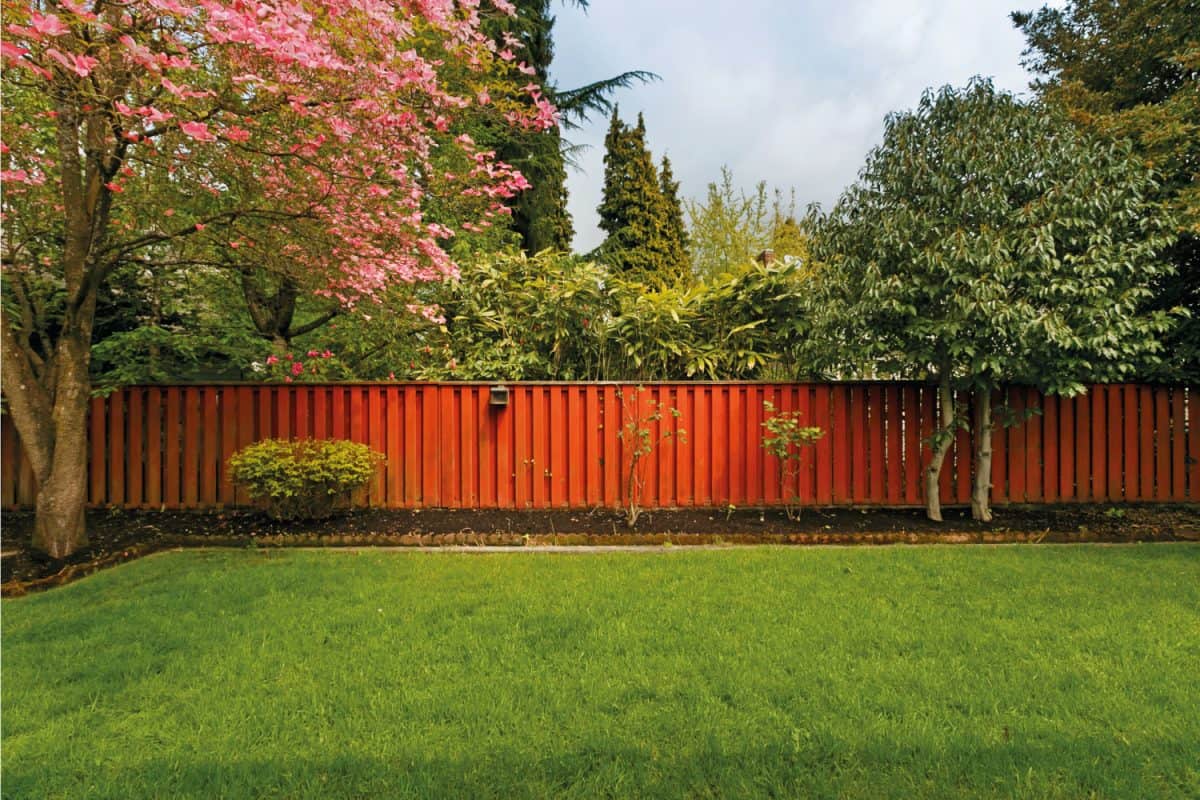
How to keep sprinklers from hitting your fences?
If you want to avoid the hassle of having your sprinkles damage your fence--or worse, your neighbor's fence--you need to plan your landscape accordingly. This will be beneficial both for your fences and the surrounding plant life.
Surely, you installed sprinklers to make your vegetation thrive, and certainly not to stain and ruin your fences. To make your fences and sprinkles do their functions efficiently, you will need to consider the logistics and placement of the fixtures on your outdoor scape.
Here are ways you can efficiently plan your lawn.
Avoid Planting Sod and Plant Beds Next to Your Fence
As much as possible, avoid irrigation near your fences. Creating plant beds next to fences will cause them to stain and become moldy, which will make the fences rot. It is best to keep your fences dry when you can as this will make the structure last longer.
If you absolutely must have plants on the fences, you can go for shrubs and plants that do not require irrigation.
Use Drip Irrigation for Plants Next to the Fence
If you still want to have plants near the fence for aesthetic purposes, grow them using drip irrigation instead of sprinklers. Drip irrigation is efficient, doesn't cost too much, and can get you the best of both worlds--watered plant beds and a protected fence.
Drip irrigation does not only protect fences; they are also better at making plant life thrive. This is because they irrigate only the ones that need irrigation; it does not stray to other locations where weeds can potentially grow.
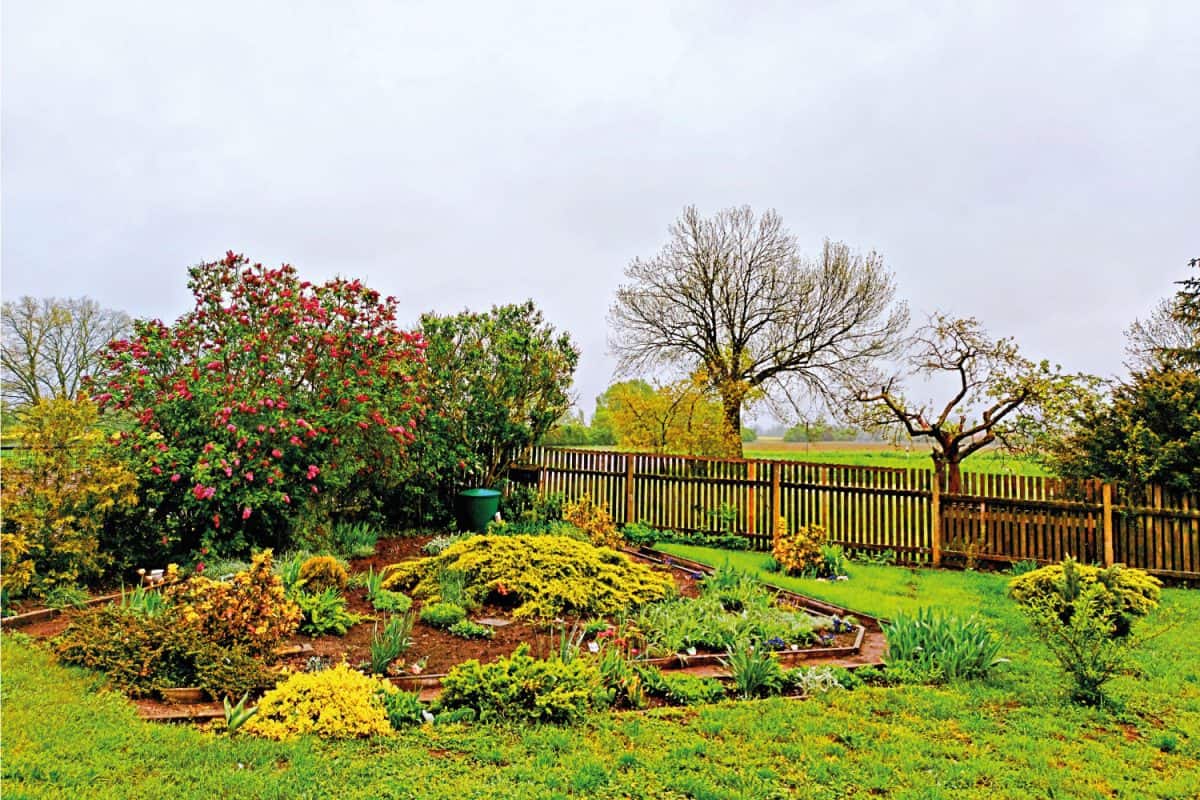
Place Sprinklers at Least 36 Inches Away from Fence
Make sure to place your sprinklers at least 36 inches away from the fence, leaving allowances in case the sprinklers suddenly get out of alignment. This will ensure that your lawn gets full coverage without risking damage to your fences.
If you have a smaller space, you can install your sprinklers at least 24 inches away from the fence. Make sure the machine is accurate, and that the water pattern is predictable.
Impact-type rotators will need to be installed further away since they tend to spray outside the watered area and spray a lot on the sides. Make sure you take the wind into account as well; they may make the water splash higher until it reaches the fence.
Install the Pipes Properly
Make sure your pipes are installed by a professional. This will ensure that the spray is consistent and aligned correctly, nurturing your plant beds and staying away from the fences. Remember to place the pipes 36 inches away from any fence.
What should you install first: sprinklers or fencing?
The order by which you install your sprinklers, fences, and plant beds also determines the efficiency of your lawn. Experts say that you need to install the plant beds after irrigation, but install fences before irrigation. This will ensure that your lawns are watered, and the fences can avoid the water.
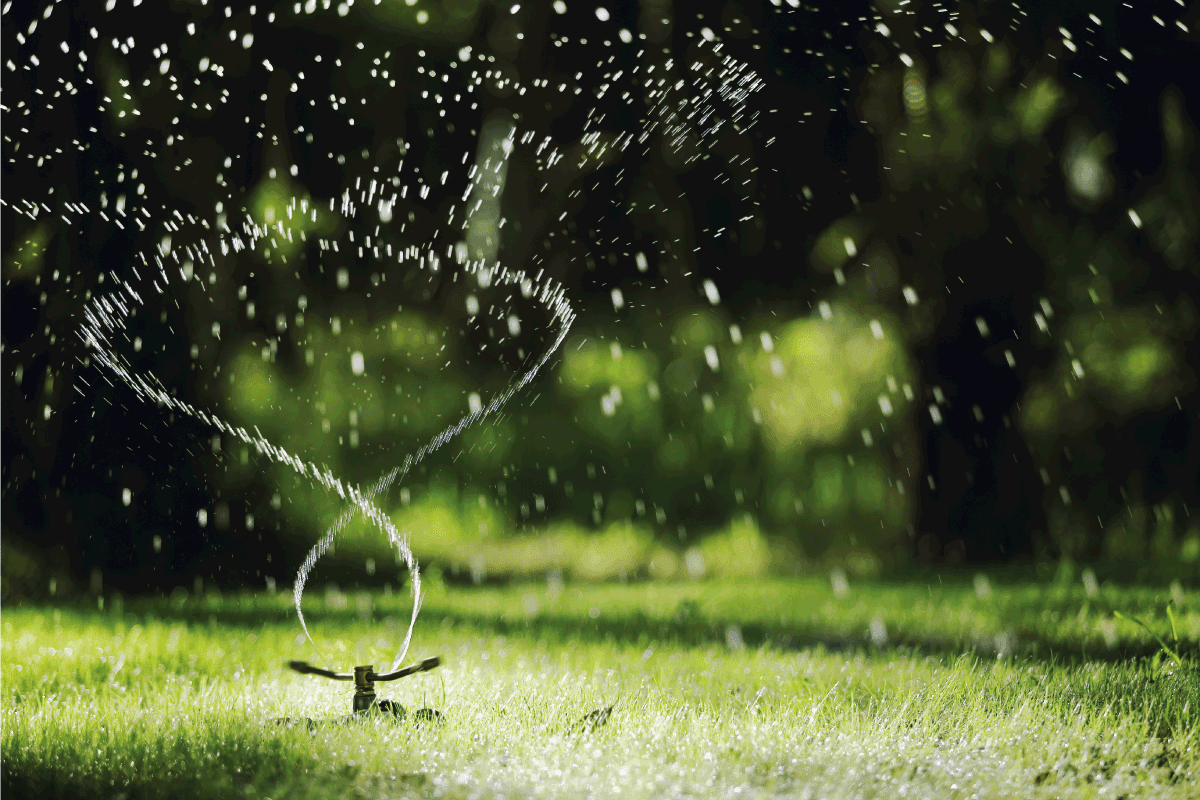
Final Thoughts
Wooden materials rot when exposed to moisture, more so if they are an outdoor fixtures. Fences are meant to be clean and dry; although some can withstand humidity better with protective coatings. Don't compromise this protective layer by incorrectly placing sprinklers near the fence.
If you want your fences to last longer, keep them away from any water sources and maintain them regularly.

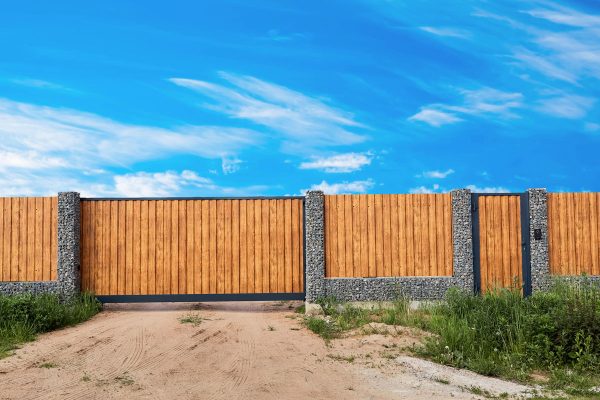
![Close board fence erected around a garden for privacy with wooden fencing panels, concrete posts and kickboards for added durability, Are Gravel Boards Treated? [And How Long Do They Last]](https://fencefixation.com/wp-content/uploads/2022/06/Close-board-fence-erected-around-a-garden-for-privacy-with-wooden-fencing-panels-concrete-posts-and-kickboards-for-added-durability-600x400.jpg)
![Wooden fence with green lawn and trees, Stepped Vs. Racked Fence Installation [Where & How To Use Each]](https://fencefixation.com/wp-content/uploads/2022/06/Wooden-fence-with-green-lawn-and-trees-600x400.jpg)